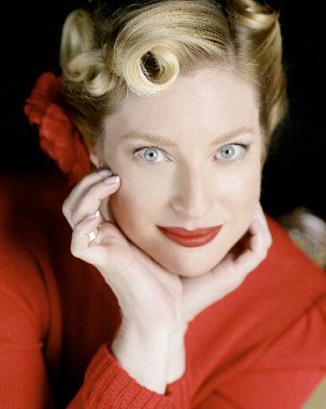
The Modern Butlers’ Journal volume 10, issue 4
International Institute of Modern Butlers
 Message from the Chairman
Message from the Chairman
Bit of a long Journal this month, introducing a new column on security issues from Baron James Shortt, and concluding the series by Ms. Gretchen dePillis on what employers look for when hiring butlers, PAs, etc.
Letters to the Editor
“What a wonderful, meaty, and fascinating email this is! I’ve been reading the articles for the last hour. Thank you for the fine work you are doing sharing information that is not readily available out in the world. Bravo!” BLK
“Wow! So good to be receiving the Journal again, thanks!” MDR.
Ed: Imagine reading letters to the editor like these two, especially after receiving none at all for several months! With a bit of digging, we realized what had been happening: Due to an unsuspected Google software glitch, we had thought the Journal was being delivered each month whenever the editor pressed “Send.” It turns out they were not, hence our readers received no Journal for half a year, and then suddenly six, plus an article, all at once, when the glitch was remedied! Our mortified digital apologies for this inconvenience, to those who wrote in (thank you), as well as all others who may have thought we had disappeared from the butler world. We haven’t, and we hope this issue will confirm this to be the case.
+++
Thanks to Baron Shortt for sharing this telling cartoon: The editor’s experience validates the general sentiment of misread intentions concerning politeness these days: An older lady, to whom he had offered his seat on the bus from the plane to the terminal at an airport, apparently felt something untoward was occurring, as with a frosty glare, she walked to the other end of the bus as fast as her little old legs could carry her!
Does anyone have similar experiences to share?
+++
“I need a wedding toast for a young couple getting married this weekend, any ideas?” MR
Ed: The below is a pretty good outline—one of the wonders of the Internet—knowledge at one’s fingertips:
1. Consider to whom you are toasting. You can toast to whomever you want, of course, but if the wedding is formal or traditional, there might be some conventions you’re not aware of. Ask around. Here are some guidelines:
- best man toasts to the bride
- maid/matron of honor toasts to the groom
- father of the bride toasts to the couple
- bride and groom toast to their parents and the guests
2. Clarify your relationship to the couple. Some guests at the wedding might not know who you are, so making this clear at the beginning will avoid any confusion.
3. Give thanks. Show gratitude to whoever is hosting the wedding, whether it’s the parents of the bride or the couple themselves. E.g. “Thank you for welcoming us to this happy occasion, and sharing your joy with us today.”
4. Share an anecdote. Stories of how various parties met are always popular, whether you talk about how the bride and groom met or your first time meeting either of them. Here are some additional ideas:
- The first time the bride or groom told you about meeting their partner.
- The first time you realized these people were an important part of your life.
- A time you got through something together, whether challenging or fun.
- The story you are looking forward to telling their kids one day.
- The way you have seen the bride and/or groom change for the better since they met.
- When you’re 90 and looking back, what would you say of your friendship?
- Tell a story of some specific detail or action that exemplifies why this person is special in this world, and to you in particular.
- If you were given three wishes for the couple, what would they be? Be careful with the use of cliché’s here. Don’t use wishes you’ve heard before.
- Tell about the time your friend saw you through an embarrassing moment. (Careful. Consider the audience).
- If it’s a second marriage and there are children involved, consider a toast referencing the newly created family.
5. Offer a compliment. Say something nice about the person (or couple) you are toasting to. Although your intentions might be good, don’t go on and on about how great a person is; instead, choose a few appreciate adjectives that go a long way (e.g. “he’s generous, intelligent, and kind”).
6. End the toast on a positive note. Offer a wish, a traditional toast, or a blessing. Here are some ideas:
- “Here’s to the groom, a man who keeps his head though he loses his heart.”
- “May she share everything with her husband, including the housework.”
- “My greatest wish for the two of you is that through the years, your love for each other will so deepen and grow, that years from now you will look back on this day, your wedding day, as the day you loved each other the least.”
- “May ‘for better or worse’ be far better than worse.”
- “Here’s to the groom with bride so fair, and here’s to the bride with groom so rare!”
- “May I see you turn grey, and combing your grandchildren’s hair.”
- “May you live each day like your last, and live each night like your first.”
- “May you see each other through many dark days, and make all the rest a little brighter.”
- “To keep your marriage brimming with love in the wedding cup, whenever you’re wrong, admit it; whenever you’re right, shut up.”
- “I would like to make a toast to lying, stealing, cheating and drinking. If you’re going to lie, lie for a friend. If you’re going to steal, steal a heart. If your going to cheat, cheat death. And if you’re going to drink, drink with me.”
7. Indicate the ending of the toast. Finish off with a phrase that’s to be repeated by the guests. For example: “Let us now toast the happiness of Jill and Jack. To Jill and Jack!”
Sample Toast, Best Man to the Bride: “Good evening, everybody. My name is Tim, and I’ve had the pleasure of having Kevin as my closest friend for seven years. I’m honored to be his best man today, and I’d like to offer a toast to his beautiful bride, Alicia. I’m grateful for the opportunity to be here to witness their union, and I’d like to thank her parents, John and Alison, for their grace in welcoming us tonight.
“The first time Kevin told me he was seeing Alicia, he didn’t even have to tell me anything about her–I knew this girl was different. I could tell from the way his eyes lit up when his phone rang, and it was her. Till that point, I’d never seen him get that excited about anything except football! Then…Kevin started changing. All of a sudden, he had a bounce in his step, a twinkle in his eye, and grin on his face–and he always offered me the last beer instead of hoarding it up for himself! Since he started seeing Alicia, Kevin has been more considerate, thoughtful and motivated than ever.
Alicia, you have deepened Kevin’s appreciation for life in way I never could have predicted. He is steadfast, honest and downright good-looking, and you are his match in every way: dedicated, genuine, and beautiful, inside and out. Thanks to your presence in his life, Kevin is not only a better friend; he’s a better person all around.
Let’s toast to the health, happiness and future of this amazing bride. To Alicia!”
“You’re the best, thank you.” MR
+++
“I would like to know where to purchase dinner serveware–silver platters, cloches, dinner sets, tea serving trays, etc. of high quality.” ECP
Ed: There may be local resources that can assist you. Have you tried contacting the Old Towne Jewelers on 4th Street? They may not have all you want, but may be able to refer you to other local resources who do or perhaps purchase it on your behalf: http://www.beachcalifornia.com/shca/discount-used-stores/santa-rosa/1-olde-towne-jewelers-707-577-8813.html
Absent a good local store that sells high quality silver dishes, your best bet would probably be to shop via the Internet. There are stores on-line such as the Silver Gallery (www.silvergallery.com) that seem to have a decent selection of such items and represent several brands, so you have a choice of design, price and quality: http://www.silvergallery.com/serving-entertaining/silver-trays/
If you know which design companies you like, you may also want to try visiting their websites directly to compare prices and selection, such as the Reed & Barton site: http://www.reedandbarton.com/serving-tabletop/serveware-accessories
“Thank you so much. Each resource you provided was exactly what I needed.” ECP
Butlers in the Media
Bloomberg TV interviews an entrepreneurial individual who became a butler (no formal training, it appears) and then created his own personnel agency. The salaries listed by his agency for butlers ($50-85,000, the same as what is listed for maids and laundresses), and having this position differentiated from Majordomos ($80,000-$130,000) and Estates and Household Managers ($100,000-$200,000) are wildly off and unfortunate, showing no real understanding of the industry.
Along the same lines, a Craigslist advertisement for a butler: is it a sign of the digital times, or of the butler going mainstream and thus downmarket, or just more American misconceptions of what is a butler? Given the starting pay listed, it seems to us that the latter be the main issue here.
Those of us fortunate enough to have tracked down a copy of Agar’s Way and unhappy about continued requests to borrow it, can breathe a sigh of relief: it has now been reprinted. There are few books covering our profession, and this little old gem is well worth adding to your library.
Somewhat unusual requests to hotel concierges that may strike a note for some of the things butlers have been asked to provide, either in private service or in hotels.
The New York Times published a very good article about the “New Domestics,” another take on “Modern Butlers.”
Media coverage on butlers in action or reminiscing in England, Ireland, England again, England again, and a London hotel. No month would be complete without another listing of the high-end services offered in some hotels capitalizing on the reputation of butlers for superior service—as well as the notion of robot butlers—they are certainly becoming increasingly sophisticated, but unfortunately, still missing that little, little ingredient…life.
Introducing Baron James Shortt, Executive Director of the IBA, who will be contributing a new column on the subject of:
Executive Protection and Security
Some Tips on Setting up Security in Private Estates
It is well-advised to be safe when traveling or dining out, but we often let our guard down when we are at home, otherwise known as the Domestic Estate. What do we need to be aware of when at home?
The first step is to take a good look at your property and the sum total of who or what comes in and goes out. What workers, suppliers and delivery vehicles come in periodically and what people leave and come back on a regular basis such as domestic help, landscapers, pool maintenance companies, trainers, etc.?
Start with the family members.
They need to be taught not to talk about or disclose any family matters, especially security matters. This is all well and good in theory, but it is hard to impress upon a 9-year old not to tell her friends her that daddy is going to Africa, or that mommy and daddy went to China and brought her back a cool toy. It is also hard to keep chatter and teenage bragging from not slipping out into Facebook (or the many other social networks available), emails etc… But one must discuss the importance of these security regulations you have at home with kids and teens and even test them once in a while, if you must. Reward them for passing the test and scold them mildly for failing… Also – create passwords for the home computer network and monitor what the kids are doing on the home network. Sure, they can make mistakes away from home – but you must work with what you can monitor.
All employees that visit the house both periodically and on a regular basis must go through a pre-hire background check and at least one background check every year. As a household professional you can probably do most of the work yourself, but if not, hire a private investigator that specializes in genuine background checks – don’t go for the on-line $75.00 “quick checks”. It can be a real red-faced moment when your driver turns out to have an undisclosed DUI or a suspended license for not paying a parking ticket… You get the point, but you need to do the background checks to make 100% sure.
All suppliers should submit the names and information of any regular delivery person or service people that will be allowed on to the grounds BEFORE they start making those deliveries. Grocery or flower deliveries, plumbers, electricians etc., all have great access and ability to gather information about the family and household once they pass the perimeter. Other deliveries and package services should be accepted outside the perimeter if at all possible.
With regards to the perimeter, diehard old security guys recommend that a security fence is essential: it allows you to see out and identify any threat. In this way, you have control over who you let into the grounds. Before the arrival of excellent and cost-effective security cameras, this was true. But these days, one can easily build a privacy perimeter of bricks, stone, etc., and then simply install a camera through which all visitors can be viewed clearly. Think about installing a PSIM (Professional Security Integrated Management) System as described by Jules Trocci in a recent edition of Aegis Journal. Use a PSIM for monitoring all alarms, cameras, gates, etc… Also think of putting a camera up well outside the perimeter of your property, if you are able to do so. It’s always interesting to see the view of your estate from across the street or down the road and this may help to potentially identify anyone monitoring the property or approaching. In some cases, I have seen people using the little drone helicopters for emergency surveillance; they work great – if you have a good pilot!
All personnel should be trained in: Heimlich Maneuver, advanced first aid, CPR – (cardio pulmonary resuscitation), and a few should be trained as EMTs – Emergency Medical Technicians. All personnel should have panic buttons on their person that can alert to the nature of an emergency through the PSIM system. Ideally this panic button should also have an audio function when activated.
All employees should carry encrypted radios to communicate to each other while on the estate – if these radios also have panic button, you get a two-for-one bonus. They are just a very practical tool for every-day work. We have all seen it happen – someone on the estate calling someone else on the estate via cell phone – much like your spouse forgetting where she left you when you two went shopping – she just calls your cell – we rely on them as the wonderful tool that they are – but are they really? The cost of an encrypted radio is so low and also much safer – make the minor investment.
Also remember – your work needs to be as discrete as possible. Your job is to make sure your charges are both safe and able to live as freely as possible. Follow these tips in order to enjoy the fruits of a safe home and a safe family.
Rent-a-Butler Assignment
A corporate client has 1-3 day assignments for butlers in the San Francisco, Chicago, and Atlanta areas this month (April). If you live in these areas and can break away, please contact the Institute about this brief opportunity. The client is looking for a “real butler” to make a number of media deliveries while dressed in traditional butler garb, and adding the caché of the real butler to the PR caper.

Let’s Talk about Spirits, Part 2
by Amer Vargas
Cognac, Part 1
With a history of over eight centuries, brandy has always been linked to luxury and those who love and appreciate the finest and most exquisite pleasures in life.

Brandy is produced by distillation, often double distillation, of fermented fruits or cereals. Then, depending on the type of brandy, it is aged in oak barrels anywhere from two to fifty years. After bottling, the drink stops developing and can be enjoyed at room temperature, on the rocks or very chilled, usually as an after-dinner drink, or as an ingredient in a cocktail at any time.
The origin of brandy comes from the dutch brandewijn, meaning ‘burnt wine,’ a spirit produced after distilling wine. Thus, the word brandy by itself always refers to the drink produced out of grapes; other types of brandy require the name of the original ingredient or an adjective to specify what sort of spirit it is, as in the case of fruit brandies like “peach brandy.”

The production of brandy began with the appearance of the first alambiques or copper pot stills, during the 12th century and became very popular in the 14th century, when wine producers were looking for ways to pay less tax for the transportation of wine. One way of achieving this, they thought, was to concentrate the wine in the casks by removing water, then adding water at the final destination! After a while, they realized that actually, the distilled drink improved during the time spent in transportation, compared to the way wine responded to being transported.
As with wine production, many factors go into to making just a regular or an outstanding drink: First of all, the soils where the plants grow impart their own strength and personality to the fruits or cereals. After crushing the berries, the mash (with or without skins and pips, depending on the type of brandy desired) undergoes fermentation for several days at tightly controlled temperatures. Then water is evaporated by means of distillation or double distillation and the remaining liquid is then stored in oak casks to age. It’s during this process that the brandy will obtain its aromas, tannins and color.
To present brandy in the bottle at the required levels of alcohol, ranging from 36o-45o, the drink is balanced out again with water. Some brewers add caramel to emphasize its color, but in amounts that do not affect the taste, or other ingredients such as raisin, almond skins, or vanilla to pamper the most discerning palates.
In the next article we shall talk about brandies from different parts of the world. Until then, light the fireplace, dim the lights, turn on some mellow music, and sniff the brandy before you sip it. Cheers!

Mr. Vargas can be contacted via AmerVargas at modernbutlers.com
Perceptions of the Butler (Part 7 of 7)
by GJ dePillis
Q: If you were to grant time off to your butler for a skills-update conference, what would be the optimal length of time for such a conference?
1. 30% of the respondents said they would allow up to one week.
2. 70% said they would allow 3 days or less.
Most employers interviewed do expect a candidate to hone their skills annually in a butler-focused conference. Every person stressed that they wished their current butler could attend a “one-stop shop” annually in order to learn or polish skills which would help the employer in their personal and business life.
What areas did they mention as requiring further training?
One peculiarity was an employer who wanted their butler to learn how to have a full social schedule on their own time, without involving the employer.
Another person shared a story about their pilot, who was also their chauffeur. This was a mistake, apparently, because the pilot knew nothing of maintaining a car and ignored a “check engine” light, eventually burning up the engine block. It was only after the pilot-turned-driver had been dismissed, that the employer realized the mastery of one craft did not necessarily mean the mastery of the mechanics of another. This employer opined that he wished his butler had been trained regularly on basic mechanical duties and maintenance schedules for all relevant transportation vehicles (boats, cars, planes, and in the case of another employer he knew, a hot air balloon), as well as the various mechanical gadgets and appliances in his homes known to break down repeatedly.
One common request was for the butler to learn skills on pre-mapping various routes in an area they had never visited before. Places referenced ranged from a safari in South Africa to travelling to an Old World European city.
When it was suggested to those interviewed that these skills may not be mastered in a once-a-year weekend conference, they stated that they understood that logically, but would want their butler to take action to address these various shortcomings.

In conclusion, the job of a butler is demanding and requires a great deal of organization and finesse, but with the proper training and regular upkeep of skills, one can exceed the employer’s expectations and have a long and successful career.
To summarize the “ideal butler,” it is a person who is skilled, discrete, honest, and reliable. They are always well dressed and knowledgeable about fabric and fashion care to make the entire household reflect well on the employer. Ideally, the butler also knows how to fix things on the spot, entertain their employer’s associates and friends properly, and in general, provide a seamlessly organized household to make their employer’s life easier. Employers are willing to send their trusted staff to short annual seminars to sharpen their skills. The position of a butler is viewed, in America, as a high-status job opportunity only to be filled by the most elite, well-trained candidates. Feel proud that you have chosen this profession. Well done!
Thank you for joining us for the final segment of this series of articles on the perceptions of prospective employers regarding prospective and current employees. We enjoyed finding out the unvarnished truth and hope you did, as well. Ms. dePillis is thanked for her initiative in researching these questions and points, and will be joining us for the next two years with a column on those fine points of light in our lives: roses—so stay tuned.
Ms. dePillis is a freelance contributor to the Journal who is based on the West Coast of the United States. She can be reached via depillis at gmail.com
Consulting the Silver Expert
by Jeffrey Herman
Q. Can one replace broken blades in stainless knives?
A. No. Such blades are fitted and ground to the shape of the handle and are specific to that design: I’m afraid one has to look for a replacement knife.
Mr. Herman continues to offer his services to our readers, for any questions you may have about the care of silver. Either call him at (800) 339-0417 (USA) or email jeff at hermansilver.com
The Institute is dedicated to raising service standards by broadly disseminating the mindset and skills of that time-honored, quintessential service provider, the British Butler, adapted to the needs of modern employers and guests in staffed homes, luxury hotels, resort, spas, retirement communities, jets, yachts, & cruise ships around the world.









